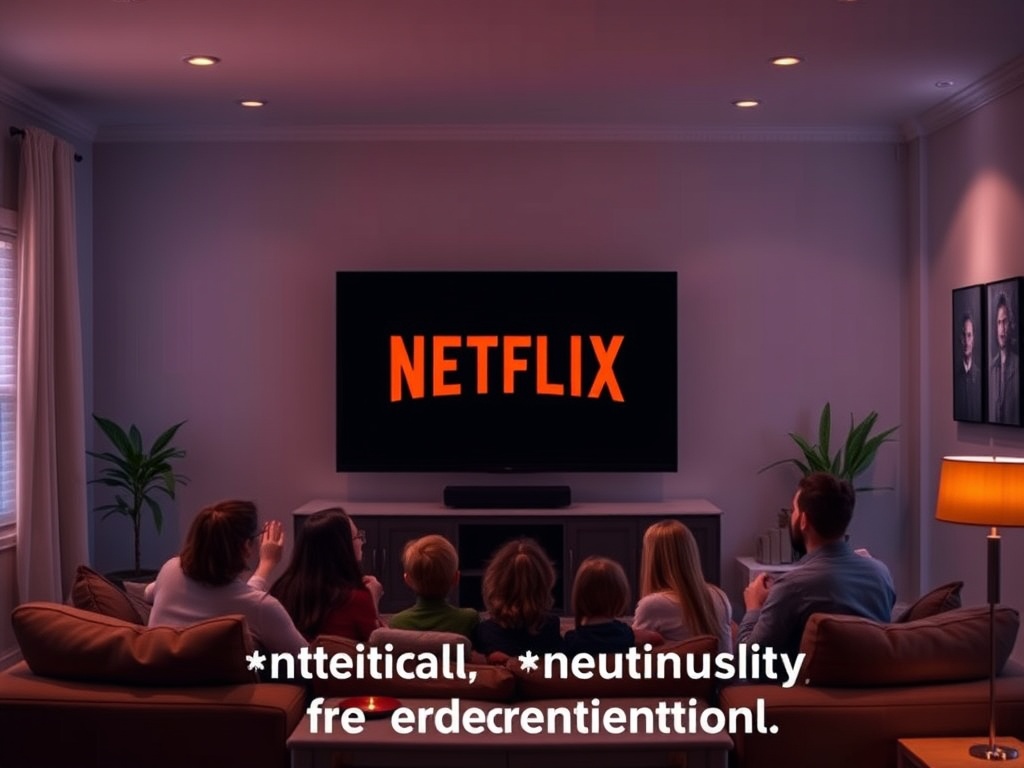The Silence of Netflix: A Political Tightrope
The tech-bro executives made quite a splash at Donald Trump’s inauguration in January, with prominent figures like Meta’s Mark Zuckerberg, Apple’s Tim Cook, Amazon founder Jeff Bezos, Google’s Sundar Pichai, and Twitter/X CEO Elon Musk all publicly aligning themselves with the new regime. However, conspicuously absent from this gathering were the co-CEOs of Netflix, Ted Sarandos and Greg Peters.
One might interpret their absence as a bold statement against the political tides sweeping through the U.S., but the reality is more complex. Reports suggest that Sarandos had a private meeting with Trump at his Mar-a-Lago estate just before Christmas. The outcome of that encounter remains unclear, but it may explain why Netflix opted to remain on the sidelines during the inauguration, especially when other tech leaders made similar visits around that time.
Netflix’s hesitance to engage in the political arena is understandable, particularly given the backlash they faced when co-founder Reed Hastings donated $7 million to Kamala Harris’s campaign. Following this donation, the company experienced a notable subscription cancellation spike of 2.8%. This demonstrates a clear risk: taking a political stance, whether Democratic or Republican, can alienate a significant portion of their subscriber base. Thus, it appears Netflix has chosen to avoid the political fray altogether.
A prime example of this aversion to partisanship can be found in their latest series, Zero Day, which has quickly become the second most-watched program on the platform in the UK. The show features the legendary Robert De Niro in the role of a former President named Mullen, who is appointed to lead a commission investigating a devastating cyber-attack. Intriguingly, Mullen is portrayed without any explicit political affiliation, a detail that might seem crucial for a character with such a significant background.
Why the Apolitical Approach?

This choice has not gone unnoticed by critics. Many reviews of Zero Day have pointed out Mullen’s painfully centrist perspective as a flaw, and journalists were left puzzled by Netflix’s request to keep political questions away from De Niro during interviews. This is particularly ironic, given De Niro’s previous outspoken criticism of Trump, where he famously referred to him as a “pig.”
Netflix has a history of steering clear of explicit political affiliations in its content. For instance, The Diplomat shares striking similarities with real U.S. politics, especially the current Biden-Harris administration, yet it carefully avoids labeling the titular diplomat, played by Keri Russell, with any specific party identity. Other series like The Recruit and The Night Agent also delve into international politics without revealing the ideological motivations of their central characters.
When asked why Zero Day is so politically neutral, Jesse Plemons, who stars alongside De Niro, suggested that designating a political party to Mullen would detract from the narrative. He explained, “When you do get into the specifics of a political party, it gives you an out immediately as a viewer to either say ‘I’m for this person’ or ‘I’m against them.’ Something disengages as you’re watching. We don’t really need any more of that.”
The Value of Political Complexity in Fiction
However, many fictional politicians whose party affiliations have added depth and relatability to their characters have proven that such neutrality can be limiting. For example, The West Wing featured Jed Bartlet, a Democrat portrayed by Martin Sheen, with much of the show’s tension stemming from his interactions with a Republican Congress. Similarly, the BBC’s Bodyguard cast Keeley Hawes as a Tory Home Secretary, adding layers to the narrative. Even House of Cards, which predated Netflix’s current stature, showcased the ruthless Democrat Frank Underwood, creating engaging, morally complex storytelling.
In today’s polarized environment, Netflix seems wary that left-leaning subscribers may shy away from content featuring a sympathetic right-leaning character, and vice versa. This caution may be understandable, but it underestimates the intelligence of the audience. Viewers can appreciate the narrative depth of a character without necessarily endorsing their political stance. The best television reflects the complexities of the real world, and Zero Day, by avoiding real-world political dynamics, risks becoming a flat and unengaging experience. By grounding their stories in reality, Netflix could create richer, more urgent narratives that resonate with viewers on multiple levels.




